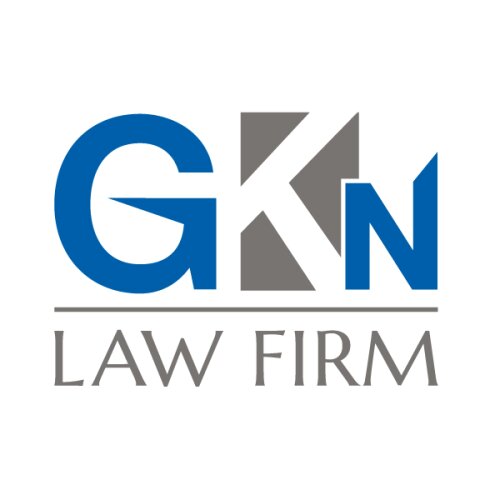Best Foreclosure Lawyers in Liverpool
Share your needs with us, get contacted by law firms.
Free. Takes 2 min.
Free Guide to Hiring a Real Estate Lawyer
List of the best lawyers in Liverpool, Australia
About Foreclosure Law in Liverpool, Australia:
Foreclosure in Liverpool, Australia is the legal process by which a lender repossesses a property when the borrower fails to make mortgage payments. This process allows the lender to sell the property to recoup the outstanding debt. Understanding the laws surrounding foreclosure is essential for both lenders and borrowers to protect their rights.
Why You May Need a Lawyer:
You may need a lawyer for foreclosure in Liverpool, Australia if you are facing foreclosure proceedings, need to negotiate with your lender, or want to explore alternative options to avoid foreclosure. A lawyer can provide legal advice, represent you in court, and help you understand your rights and options.
Local Laws Overview:
In Liverpool, Australia, the laws surrounding foreclosure are primarily governed by the Conveyancing Act 1919 and the Real Property Act 1900. These laws outline the process of foreclosure, the rights and responsibilities of both lenders and borrowers, and the steps that must be followed to execute a foreclosure.
Frequently Asked Questions:
1. What is foreclosure?
Foreclosure is the legal process by which a lender repossesses a property when the borrower fails to make mortgage payments.
2. How long does the foreclosure process take in Liverpool, Australia?
The foreclosure process in Liverpool can vary depending on the circumstances, but it typically takes several months to complete.
3. Can I stop a foreclosure once it has started?
It may be possible to stop a foreclosure once it has started by working with your lender to reach a solution, such as a loan modification or repayment plan.
4. What are my rights as a borrower facing foreclosure?
Borrowers facing foreclosure have rights, including the right to be informed about the foreclosure process, the right to challenge the foreclosure in court, and the right to negotiate with their lender.
5. Can I negotiate with my lender to avoid foreclosure?
Yes, you can negotiate with your lender to avoid foreclosure. A lawyer can help you explore options such as loan modification, forbearance, or a short sale.
6. What are the consequences of foreclosure?
Consequences of foreclosure can include damage to your credit score, the loss of your home, and potential legal action by the lender to recover the remaining debt.
7. How can a lawyer help me with foreclosure?
A lawyer can provide legal advice, represent you in court, negotiate with your lender, help you understand your options, and protect your rights throughout the foreclosure process.
8. Are there alternatives to foreclosure?
Yes, there are alternatives to foreclosure, such as loan modification, short sale, deed in lieu of foreclosure, and forbearance. A lawyer can help you explore these options.
9. What should I do if I receive a foreclosure notice?
If you receive a foreclosure notice, it is important to act quickly. Contact a lawyer to understand your rights and options and to explore ways to avoid foreclosure.
10. How much does it cost to hire a lawyer for foreclosure?
The cost of hiring a lawyer for foreclosure can vary depending on the complexity of your case and the lawyer's fees. Many lawyers offer free consultations to discuss your situation and provide an estimate of costs.
Additional Resources:
For more information on foreclosure in Liverpool, Australia, you can contact the Legal Aid NSW or the Law Society of New South Wales. These organizations provide free legal advice and resources for individuals facing foreclosure.
Next Steps:
If you are facing foreclosure in Liverpool, Australia and need legal assistance, contact a lawyer specializing in real estate law as soon as possible. They can help you understand your rights, explore alternative options, and represent you in court if necessary.
Lawzana helps you find the best lawyers and law firms in Liverpool through a curated and pre-screened list of qualified legal professionals. Our platform offers rankings and detailed profiles of attorneys and law firms, allowing you to compare based on practice areas, including Foreclosure, experience, and client feedback.
Each profile includes a description of the firm's areas of practice, client reviews, team members and partners, year of establishment, spoken languages, office locations, contact information, social media presence, and any published articles or resources. Most firms on our platform speak English and are experienced in both local and international legal matters.
Get a quote from top-rated law firms in Liverpool, Australia — quickly, securely, and without unnecessary hassle.
Disclaimer:
The information provided on this page is for general informational purposes only and does not constitute legal advice. While we strive to ensure the accuracy and relevance of the content, legal information may change over time, and interpretations of the law can vary. You should always consult with a qualified legal professional for advice specific to your situation.
We disclaim all liability for actions taken or not taken based on the content of this page. If you believe any information is incorrect or outdated, please contact us, and we will review and update it where appropriate.








